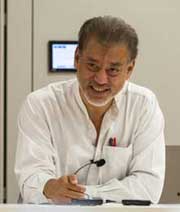KUALA LUMPUR, Malaysia, Sep 11 (IPS) – Economically marginalised and dominated by the Global North, developing countries urgently need to work together to better advance their shared interests and achieve world peace and sustainable development.

Since the global financial crisis (GFC) of 2008, successive administrations – led by Obama, Trump and Biden – have all sought to maintain full employment in the US. However, real wages and working conditions for most have suffered.
Exceptionally among monetary authorities, the U.S. Fed’s mandate includes ensuring full employment. However, without the U.S.-Soviet rivalry of the first Cold War, Washington no longer seeks a thriving, growing global economy.
This has had an impact on US relations with NATO and other allies, most of which have been hit by global economic stagnation since the GFC. Rather than ensuring global recovery, “unconventional monetary policy measures” that addressed the subsequent Great Recession have enabled further financialization.
Interest rate hikes slow growth
Since early 2022, the US has unnecessarily raised interest rates. Stanley Fischer, later IMF Deputy Managing Director and US Federal Reserve Bank Vice Chair, and colleague Rudiger Dornbusch found low double-digit inflation acceptable, even desirable for growth.
Before the fetishization of the 2% inflation target, other mainstream economists came to similar conclusions in the late 20th century. Since then, the US Fed and most other Western central banks have been fixated on inflation targets, which have no theoretical or empirical justification.
Austerity policies have complemented such monetary priorities, increasing the pressure on macroeconomic policy. Many governments are being ‘convinced’ that fiscal policy is too important to be left to finance ministers.
Instead, independent fiscal councils set acceptable levels of government debt and deficit. Macroeconomic policies are thus causing stagnation everywhere.
While Europe has largely embraced this policy, Japan has not subscribed to it. Nevertheless, this new Western policy dogma appeals to economic theory and policy experience, when in fact neither supports it.
The US Fed’s rate hikes since early 2022 have led to capital flight from developing countries, leaving the poorest countries worse off. Previous financial inflows to low-income countries have since left in a hurry.
New Cold War Contractionary
The new Cold War has worsened the macroeconomic situation, further depressing the global economy. Meanwhile, geopolitical considerations are increasingly taking precedence over development and other priorities.
The increasing imposition of illegal sanctions has reduced investment and technology flows to the Global South. Meanwhile, the weaponization of economic policies is spreading rapidly and becoming normalized.
After the fiasco of the invasion of Iraq, the US, NATO and others often do not ask for sanctions to be ratified by the UN Security Council. Their sanctions are therefore in violation of the UN Charter and international law. Nevertheless, such illegal sanctions have been imposed with impunity.
Now that most of Europe is a member of NATO, the OECD, the G7 and other Western institutions under US leadership are increasingly undermining UN-led multilateralism. Multilateralism was designed by them and is still dominated by them, but they no longer control it.
Inconvenient provisions of international law are ignored or invoked only when expedient. The first Cold War ended with a unipolar moment, but this did not prevent new challenges to American power, usually in response to its assertions of authority.
Such unilateral sanctions have exacerbated other supply-side disruptions, such as the pandemic, and worsened recent contractionary and inflationary pressures.
In response, Western powers collectively raised interest rates, exacerbating the ongoing economic stagnation by reducing demand without effectively addressing supply-side inflation.
The internationally agreed sustainable development and climate goals have become less achievable. Poverty, inequality and precarity have worsened, especially for the most needy and vulnerable.
Limited options for South
Because of its diversity, the Global South faces different constraints. The problems faced by the poorest low-income countries are quite different from those in East Asia, where foreign exchange restrictions are less of a problem.
Gita Gopinath, principal deputy managing director of the IMF, argues that developing countries should not join the new Cold War.
This suggests that even those in power in Washington recognize that the new Cold War is exacerbating the stagnation that has persisted since the 2008 global financial crisis.
Josep Borrell – the European Commission’s second most important official, in charge of international affairs – sees Europe as a garden facing invasion by the surrounding jungle. To protect itself, he wants Europe to attack the jungle first.
Meanwhile, many – including some foreign ministers of leading non-aligned countries – argue that non-aligned countries are irrelevant after the end of the first Cold War.
Non-alignment of the old type – à la Bandung in 1955 and Belgrade in 1961 – may be less relevant, but a new non-alignment is needed for our times. Today’s non-alignment should include firm commitments to sustainable development and peace.
The origins of BRICS are very different, except for economically less important developing countries. Although not representative of the Global South, it has quickly become important.
Meanwhile, the Non-Aligned Movement (NAM) remains marginalized. The Global South urgently needs to get its act together, despite the limited options at its disposal.
IPS UN Office
Follow @IPSNewsUNBureau
Follow IPS News UN Bureau on Instagram
© Inter Press Service (2024) — All rights reservedOriginal source: Inter Press Service







